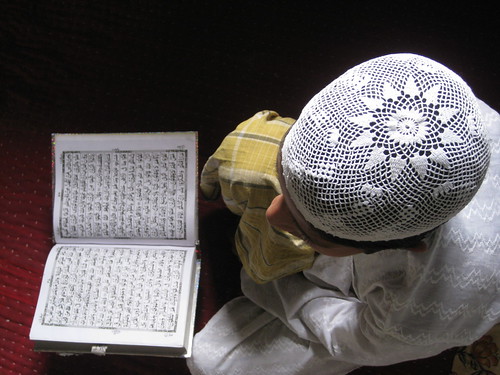By Sadia Dehlvi,
I am passionate about the Quran, love swimming in the scriptures and begin each morning reading verses from the Book Muslims believe to be the word of Allah. The Quran is not an intellectual or political document but a call to recognise the Lord and submit to Him. It drives towards purification of the heart, mind, body and soul. Sadly, I find many people with negative stereotype perceptions of Muslim Scripture.
Surely, the problems are on the side of the reader, not the Book. The revelations to prophet Muhammad began in the year 610 AD and were completed over a period of 23 years. The Quran is an extraordinary powerful text divided into 114 surah, chapters of unequal length that contain 6,236 verses, each called an ‘ayat’, literally meaning signs.

Quran require both understanding and response for simply believing in God is not enough. Muslims have to translate the meaning of the Book into prayer, righteous intent and behaviour, without which God remains an abstract idea. Prophet Muhammad provided detailed interpretations of the Message, after which countless sages, scholars, theologians and jurists through the centuries have interpreted the Quran, keeping in mind the requirement of the time. Muhammad’s words, “The difference of opinion amongst scholars is a blessing”, establishes that Islam requires unity of form but encourages diversity of creative religious expression.
The Quran describes itself as a book of wisdom and guidance for the pious. With its all-inclusive vision, it attempts to build a global community. One cannot be a Muslim without affirming all the prophets who came before Muhammad. Islamic traditions believe that around 1, 24,000 prophets were sent to planet earth. The Quran informs that there has never been a time when God did not send Messengers who did not speak the language of the people. ‘To every people was sent an apostle’.
The tale of the Miraj, Ascension of prophet Muhammad to the Heavens has become a paradigm of Muslim spirituality; for we all have to follow him in making that ascension. It is a story of pluralism, where the prophet journeyed to the heart of the older Semitic traditions, the Temple of the Mount in Jerusalem. Here, Muhammad led all the previous prophets in prayer and then journeyed on Al Buraq, the Heavenly steed, to meet the Lord. On the different layers of Heaven, he encounters Abraham, Jesus, Moses and some other prophets. They shared their stories, insights and concerns for humanity.
There is a wonderful story of Omar, the second caliph that illustrates the Islamic principles of tolerance, appreciation, justice and compassion. After conquering the city of Jerusalem in 638 Ad, Omar was escorted by the Greek patriarch to the main church of the city. It was time for Muslim prayer so the patriarch invited Omar to pray right beside the tomb of Christ. The caliph declined, walked across and prayed on the street. Omar explained that if he prayed inside the Church of the Holy Sepulchre, some misguided Muslims attempting to celebrate the first Muslim prayer in Jerusalem, might convert the church into a mosque and that should never happen. A small mosque was later built and exists across the church, where Omar prayed. The caliph signed an edict allowing the Christians to keep their churches in the best part of town.
Omar then asked the whereabouts of the great mosque of Prophet Solomon, mentioned in the Quran. The Christians got nervous for they had burnt down the Jewish temple.
The Christians had left the ruins to show the subjugation of Judaism. To Omar’s horror, he discovered the Byzantines using it as a garbage dump. The Muslims cleared the rubble, sprinkled rose water, helped restore the place of worship and asked the Jews who had fled to return to the city. Some 70 Jewish families were invited to settle in Jerusalem, living side by side with the Muslims. Jersualem is the third holiest city for Muslims after Makkah and Madinah.
Islam is at home anywhere in the world where there is excellence and a willingness to surrender ones being to the Divine. In these difficult times, Muslims need to reclaim their intellectual heritage and become good ambassadors of the Message of the Quran.

